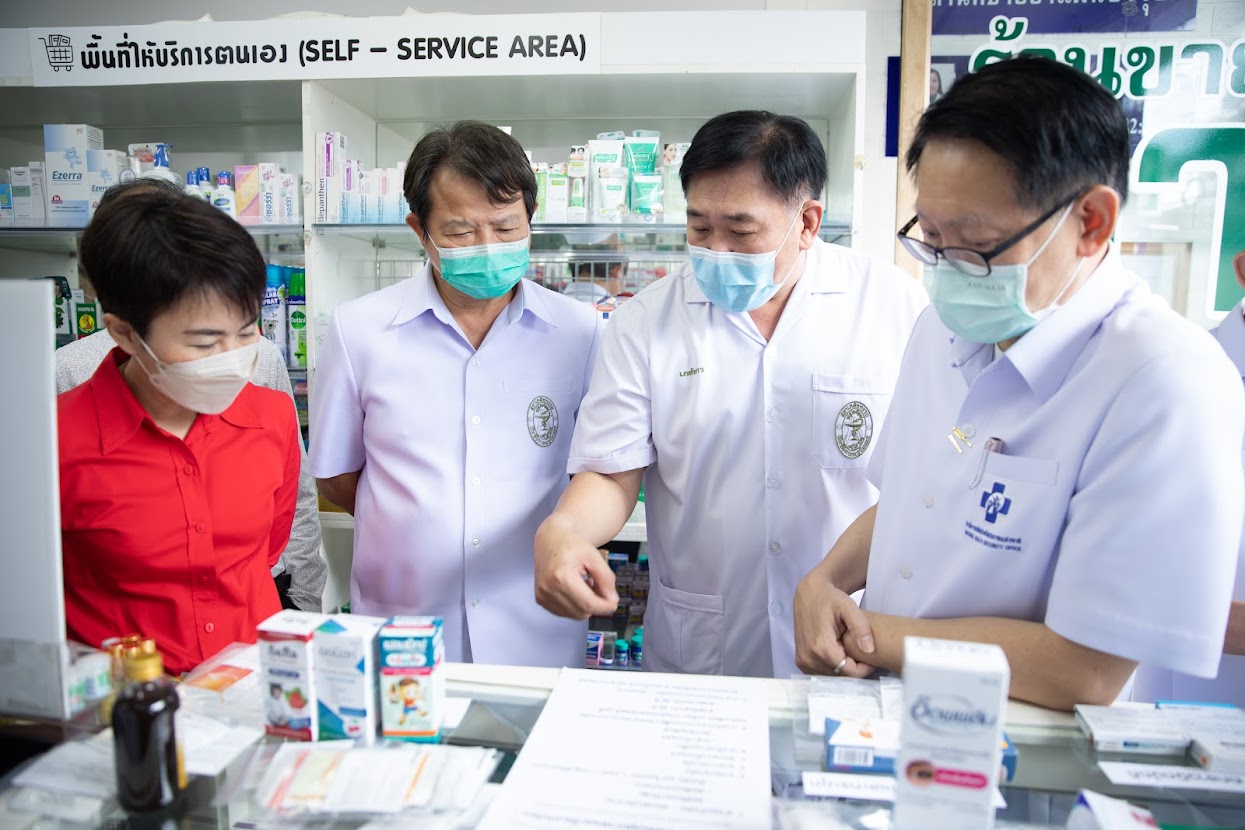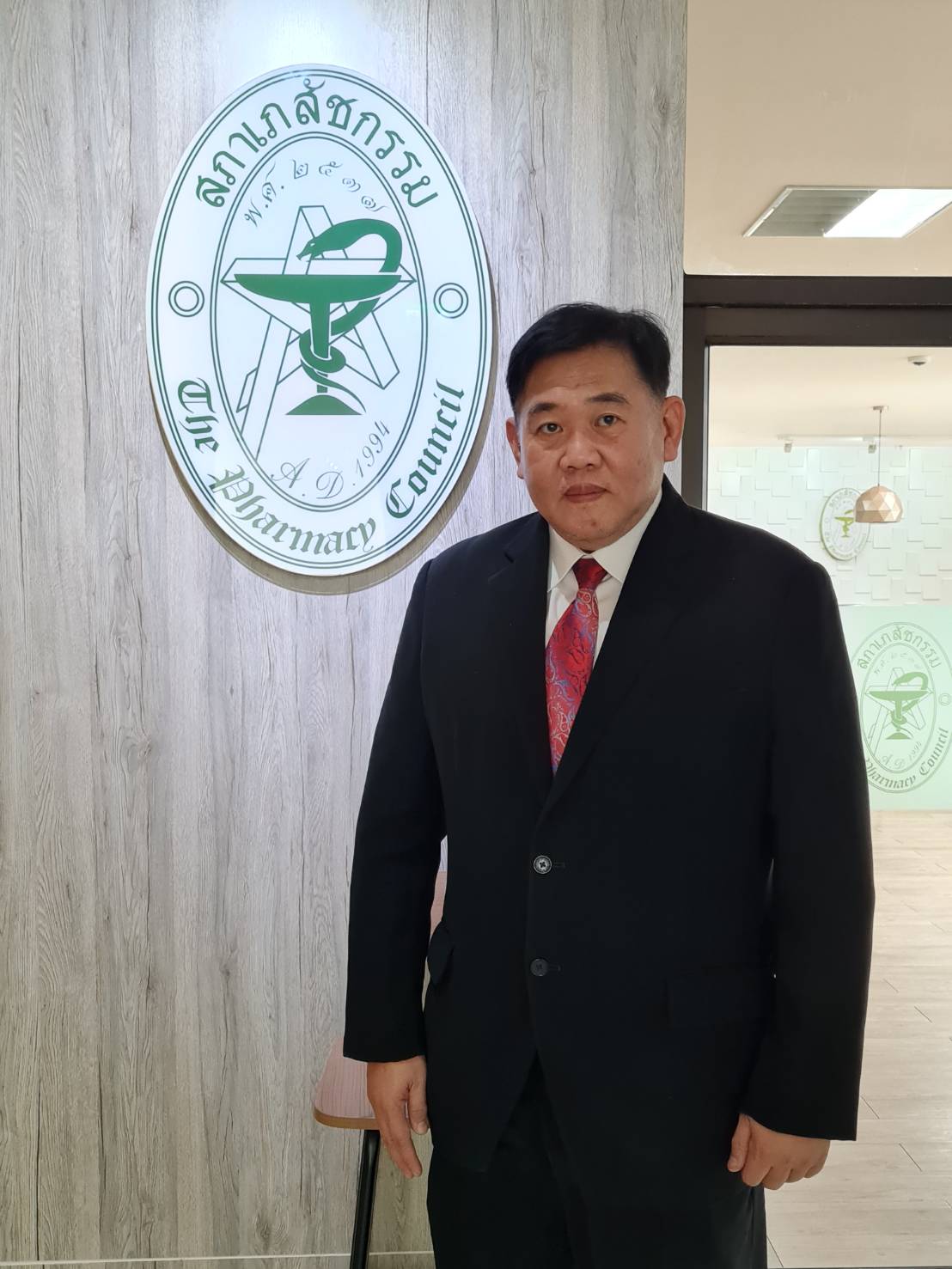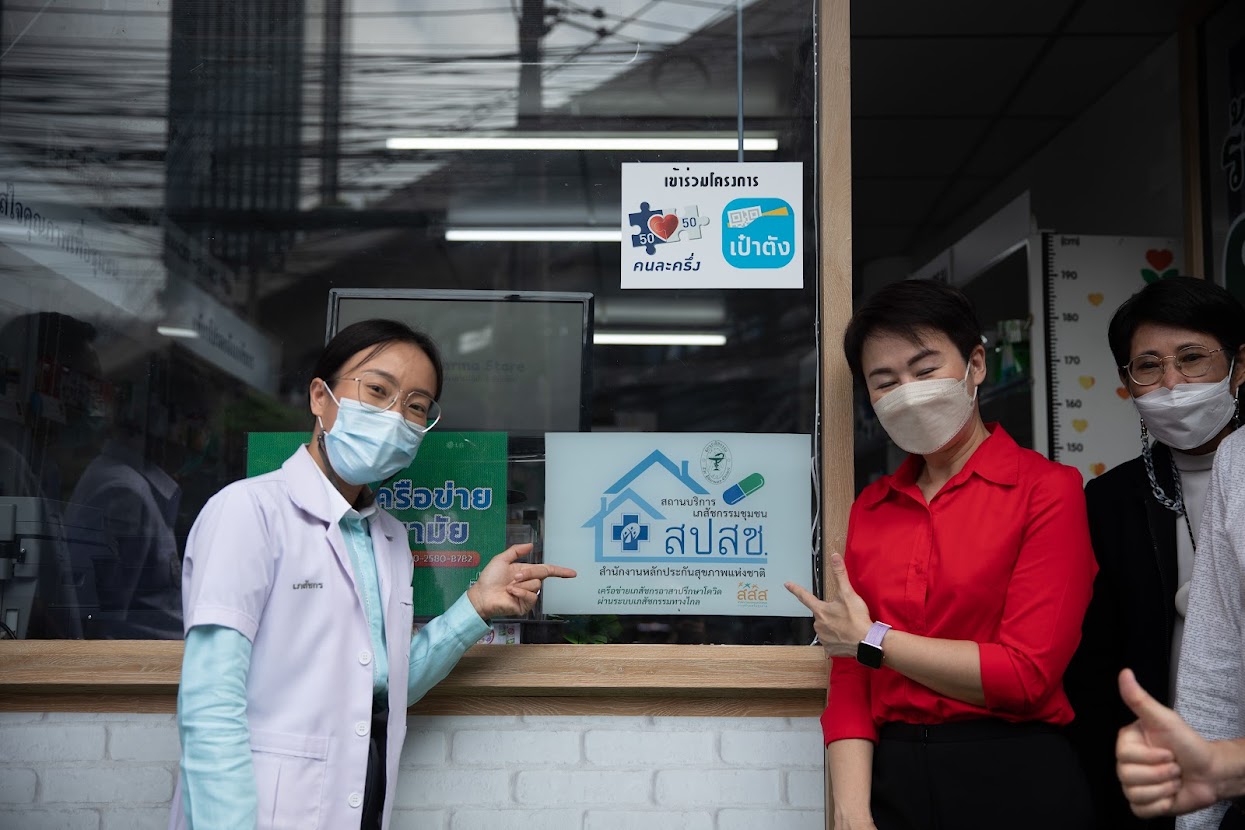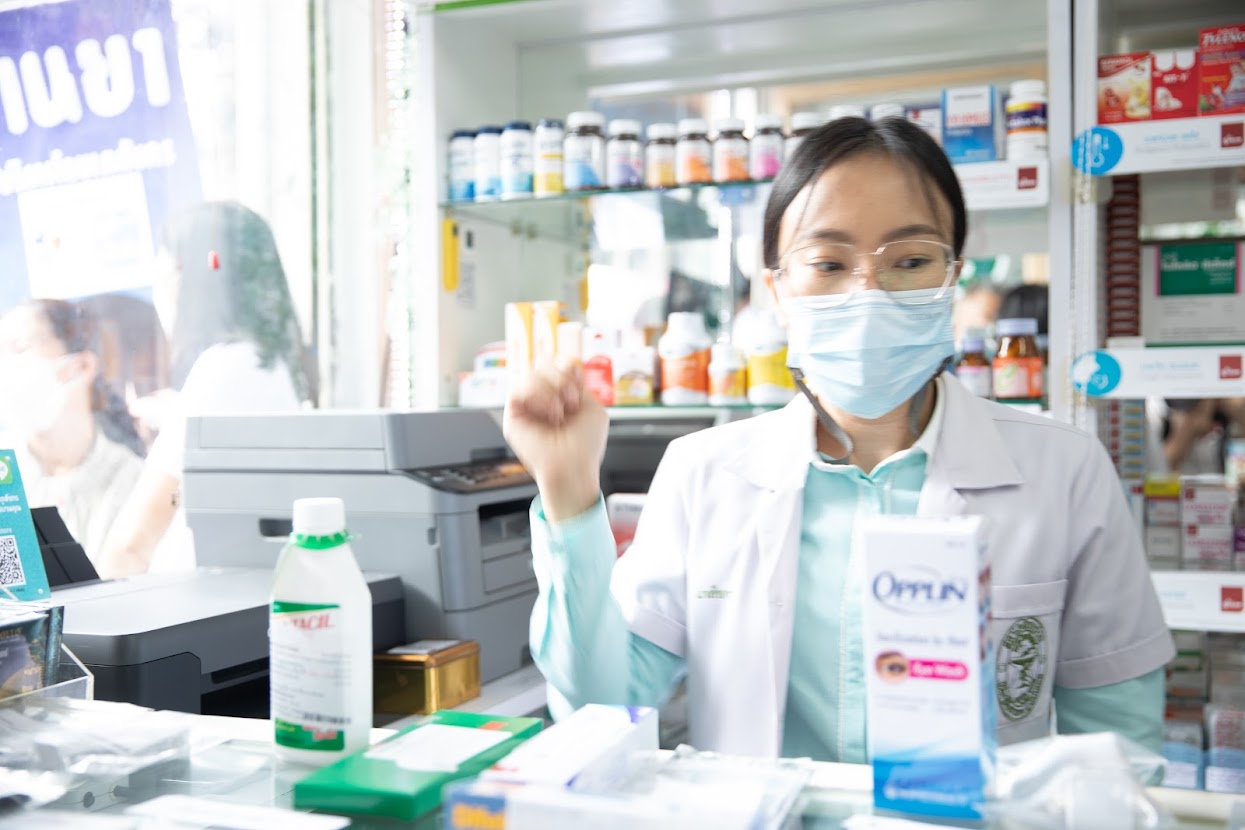
- Home
- DescriptionNews
Strengthen primary care through pharmacies

Strengthen primary care through pharmacies
The National Health Security Office (NHSO) partners with the Pharmacy Council of Thailand (PCT) and retail drug stores to expand the role of pharmacists in primary care.
The partnership, started in 2019 and will be accelerated in 2023, aims to increase people’s access to primary care by tapping the opportunity of ubiquitous private pharmacies in Thailand and turning them into entry points of care.
More than 500 pharmacies have joined this partnership, which is made eligible for beneficiaries of the Universal Coverage Scheme (UCS) overseen by the NHSO.
The UCS beneficiaries can request free consultations with the pharmacists at the partnered drug stores and get medicines for treating 16 common illnesses — including headache, dizziness, joint and muscle pain, fever, cough, sore throat, stomachache, constipation, dysuria, irregular leukorrhea, and skin and eye irritation.
“Pharmacists are one of the key players in the health system and can play significant roles in increasing people’s access to primary care,” said the NHSO secretary general Dr Jadej Thammatacharee.
“UCS covers more than 48 million Thais, so it’s important to engage all health professionals in increasing entry points to healthcare services, especially primary care and health promotion and diseases prevention services that maintain people’s good health and minimize their risk of developing severe symptoms.”
The pharmacy joining the partnership can claim the consultation fees and medication costs from the NHSO, which represents the health purchaser.
The payment will be made in a lump sum, 180 baht per customer visit.
To join the partnership, pharmacists at the drug stores must pass the training offered by PCT. It’s expected that 1,500 pharmacies will join this effort in the next few months.
Quality pharmacies
The partnership was developed during the COVID-19 pandemic.
As hospitals were crowded with coronavirus patients, many people headed to pharmacies for common illnesses instead — amplifying the roles of pharmacies in closing the healthcare gap in the health crisis.

Preecha Bhandtivej, a pharmacist and PCT’s Vice President, said that pharmacists at the retail drug stores played significant roles in testing and treating mild-symptom COVID-19 cases.
Their roles include distributing free self-test kits to risk groups, prescribing medicine to coronavirus patients, and following up on their health conditions.
“We received good feedback from the patients who said they were cared for attentively. They also found convenience when they could access care at pharmacies nearby their home,” said Preecha.
“On the other hand, keeping them at home reduce unnecessary hospital visits and hospital crowding.”
Because of this positive outcome, the PCT has collaborated with the NHSO after the health crisis to expand the partnership — which will solve health resource constraints in the long run.
Preecha added that all pharmacies joining the partnership must go through a selection process.

They must pass the checklists of Good Pharmacy Practice (GPP) standards set by the Ministry of Public Health and register in the list of “Quality Pharmacies” meaning the pharmacies that are certified to provide care to UCS beneficiaries.
Pharmacists at the stores must pass the training and tests that guarantee their abilities to provide effective consultation and medication to customers.
After they pass the test, each pharmacy will receive a certificate and a sticker printed with “My Quality Pharmacy”, which will be attached in front of their stores.
The pharmacists would refer the patients to hospitals if their symptoms become more severe, said Preecha.
Join hands with retails
Boots Retail Thailand is one of the drug retail stores that have participated in the partnership with the NHSO and PCT since November 3.
Yosnuntwitch Toonkumkopphuengton, Healthcare Director of Boots Retail Thailand, said that the company ran more than 200 stores that would provide UCS beneficiaries with free consultations and medications for common illnesses.
More than 230 pharmacists have passed the training required under the partnership. They offer consultations at the counters as well as through a chat feature of Boots mobile application.
Boots have operated in Thailand for 25 years and is well known for delivering quality medicines and health products to Thai customers.
It sets a mission to make Thai people access quality health products so they will have good health and well-being.

The company’s partnership with the NHSO and PCT is in line with its mission, said Yosnuntwitch.
The UCS beneficiaries must show Thai ID cards at Boots’ counters to verify their identities and registered healthcare scheme.
After consulting with pharmacists and receiving medications, pharmacists will follow up symptoms of customers within three days after their visit.
“We feel grateful that the NHSO and PCT launched this partnership as it will increase people’s access to care and medicine. They can request the services unlimited time in a year,” he said.
“We believe that the partnership will benefit more than 48 million UCS beneficiaries. Six million out of those are Bangkok residents who will be interested in this benefit.”
.jpg)
////////////////////////////

